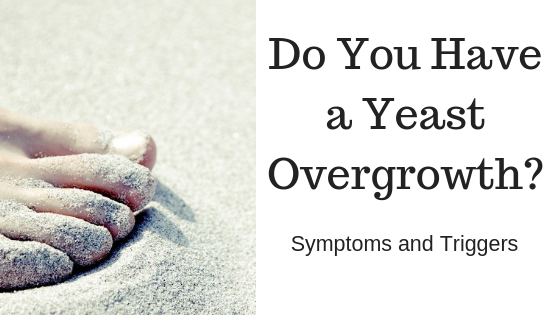I feel like I’m taking a risk with the photo I chose for this post. When you look at it, do you see passion in a good way…as in a passion for dancing that led to the work involved in being able to do this? Wow! Or, what they are depicting as not so pure? Is it beautiful or does it remind you of sin? To tell you the truth, when I typed in “passion” to find an appropriate photo, I was a little nervous as to what I would see. And I saw it all. The good, the bad and the ugly. Which tied in perfectly to this post.
I was invited to speak at a retreat recently, and afterward was approached by someone who mentioned that whenever I said “passion,” she had an automatic negative reaction to the word. She was most helpful, and I thank her for her candidness. Indeed, when we speak of our passions in the context of our Faith, they are most often related to sin. It turns out that she is not the only one who has this reaction. It’s caused me to pause and consider my use of the word.
If you have been reading my blog posts, and following the programs coming out of Holistic Christian Life, you know that I say I have a passion for health and wellness and for helping Orthodox Christians get healthy. I truly believe this passion is from God, and I use the terms “passion” and “passionate” quite freely. It is being used for good (I hope!) and for love for His people, so I’ve attributed this passion as coming from God. I’ve even heard people say that they have a passion for God!
The first time I thought about passions with a negative connotation was about 25 years ago when a friend told me that she wished that God would just take her. That she wanted to be free from her passions, because they were tormenting her, and she didn’t want to be a part of this fallen world any longer. To her, the word “passion” meant a sinful nature. It took me a while to figure this out. I think we can all relate to struggling with the sin in our lives, and wishing that we didn’t have to struggle. During my Evangelical Christian walk at the time, the word “passions” used for sinful temptations struck me as odd. The only connection I could make with a negative connotation was when it’s used in a sexual way, and not within the sanctity of marriage.
This caused me to do further study into the word, and into the Word!
A short synopsis of Merriam-Webster’s definition of passion includes:
-
The sufferings of Christ between the night of the Last Supper and his death (Is anyone else surprised that this ranked #1?)
-
Intense, driving, or overmastering feeling or conviction
-
Ardent affection
All of the scripture verses I found use the word passion in a sinful, negative way. Indeed, the Orthodox Christian use of the word goes back to the Greek root, which is path, or “to suffer.” The Hebrew word for passion means…well…passion. So not very helpful.
After all is said and done, I’m thinking I will change the word I use. After all, I am talking to Christians about their lifestyle and living in a way that pleases God. I’m not addressing the secular world about “living with passion” or other modern turns of phrase.
Mr. Google gave me “20 Words to Use Instead of Passion,” and upon careful consideration, I’ve chosen to skip “possessed” and “rabid” and will probably settle on “inspired” or “determined.” I’m happy to take a poll…




4 Comments
Thank you for your thoughtful article. I am 63 years old cradle Orthodox woman – not a scholar in language!
The English use of the word passion has always been connected in my generation and my mind with sexual (mis)conduct.
At the same time, THE PASSION is clear as CHRIST’S SUFFERING and I often refer to my passion as quilt making!
I understand the Greek work PATHOS as an emotionally difficult struggle…
So for me, the way I guess l interpret the Orthodox use of “passion” is as in the Greek verb ‘agonizomai’ . Strong’s Concordance defines it as : to struggle or strive in an athletic contest or warfare…contending with an
adversary…to labor earnestly for a prize….(now l know that is a verb and passion is a noun…)
Don,t know if this is the kind of response you were after but it got me thinking this morning….thank you!
Cynthia, I learned so much from Fr. Patrick last night! I am going to look into reading the hours, or finding a way (like an alarm!) to at least remember to say the Lord’s Prayer at those times throughout the day. What a scholar and dear fatherly man he is!
One of my Wichita Orthodox sisters is reading from ST Paisios and sent me this. I know he speaks to dealing with the passions, which I found so interesting on your blog today! As I began to understand the church’s usage of the word, I, too, became very conscious of how often I used the term in my speech, and in the world’s secular lingo. I also curbed my usage as I began to learn and read more from the Church Fathers.
This quote is one I want to remember, especially as I am dealing with health issues. And I thought of you and your health ministry and knew you would appreciate it.
Blessed Day!
Marlene
The Children of Self-love and Pride: Soul-razing sorrow
[Part 12 of 13]
“[St. Paisios responds to the comment: ‘Geronta, I worry because I have many health problems.’] Accept everything as great blessings of God. God is not unjust. In heaven, you will have many things to delight in. You will have a great pension, unless you decrease it on your own with your grumbling. ‘Geronta, how can this happen? I do not sense Heaven within me now.’ You do not sense heaven because you do not glorify God. When one moves within the realm of doxology, he rejoices about everything. There are lay people in the world who will judge us monastics… With all that you hear [about lay people living a life of doxology], you should constantly be moving within the realm of praise and doxology. Praise God for His benefactions day and night.”
Hi Maria, I love your input, and the connection with “agonizomai”. Also, your reference to Strong’s Concordance. To labor earnestly for a prize resonates with me…but with a servants heart of wanting to guide others to the prize of health, wellness, and living our Orthodoxy fully. It’s made me think… Thank you!
Love this Marlene! Thank you!